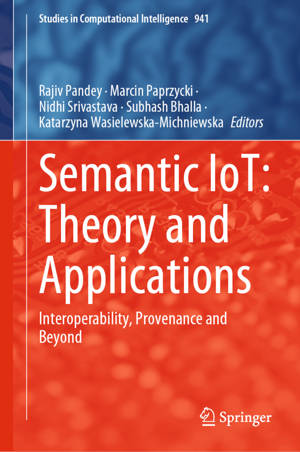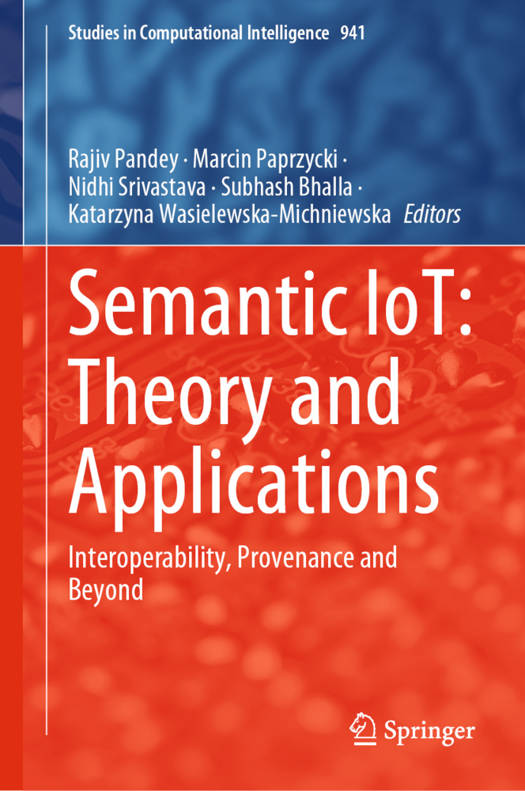
- Retrait gratuit dans votre magasin Club
- 7.000.000 titres dans notre catalogue
- Payer en toute sécurité
- Toujours un magasin près de chez vous
- Retrait gratuit dans votre magasin Club
- 7.000.0000 titres dans notre catalogue
- Payer en toute sécurité
- Toujours un magasin près de chez vous
Semantic Iot: Theory and Applications
Interoperability, Provenance and Beyond
Description
This book is focused on an emerging area, i.e. combination of IoT and semantic technologies, which should enable breaking the silos of local and/or domain-specific IoT deployments.
Taking into account the way that IoT ecosystems are realized, several challenges can be identified. Among them of definite importance are (this list is, obviously, not exhaustive): (i) How to provide common representation and/or shared understanding of data that will enable analysis across (systematically growing) ecosystems? (ii) How to build ecosystems based on data flows? (iii) How to track data provenance? (iv) How to ensure/manage trust? (v) How to search for things/data within ecosystems? (vi) How to store data and assure its quality?
Semantic technologies are often considered among the possible ways of addressing these (and other, related) questions. More precisely, in academic research and in industrial practice, semantic technologies materialize in the following contexts (this list is, also, not exhaustive, but indicates the breadth of scope of semantic technology usability): (i) representation of artefacts in IoT ecosystems and IoT networks, (ii) providing interoperability between heterogeneous IoT artefacts, (ii) representation of provenance information, enabling provenance tracking, trust establishment, and quality assessment, (iv) semantic search, enabling flexible access to data originating in different places across the ecosystem, (v) flexible storage of heterogeneous data. Finally, Semantic Web, Web of Things, and Linked Open Data are architectural paradigms, with which the aforementioned solutions are to be integrated, to provide production-ready deployments.
Spécifications
Parties prenantes
- Editeur:
Contenu
- Nombre de pages :
- 415
- Langue:
- Anglais
- Collection :
- Tome:
- n° 941
Caractéristiques
- EAN:
- 9783030646189
- Date de parution :
- 13-04-21
- Format:
- Livre relié
- Format numérique:
- Genaaid
- Dimensions :
- 156 mm x 234 mm
- Poids :
- 784 g

Les avis
Nous publions uniquement les avis qui respectent les conditions requises. Consultez nos conditions pour les avis.





